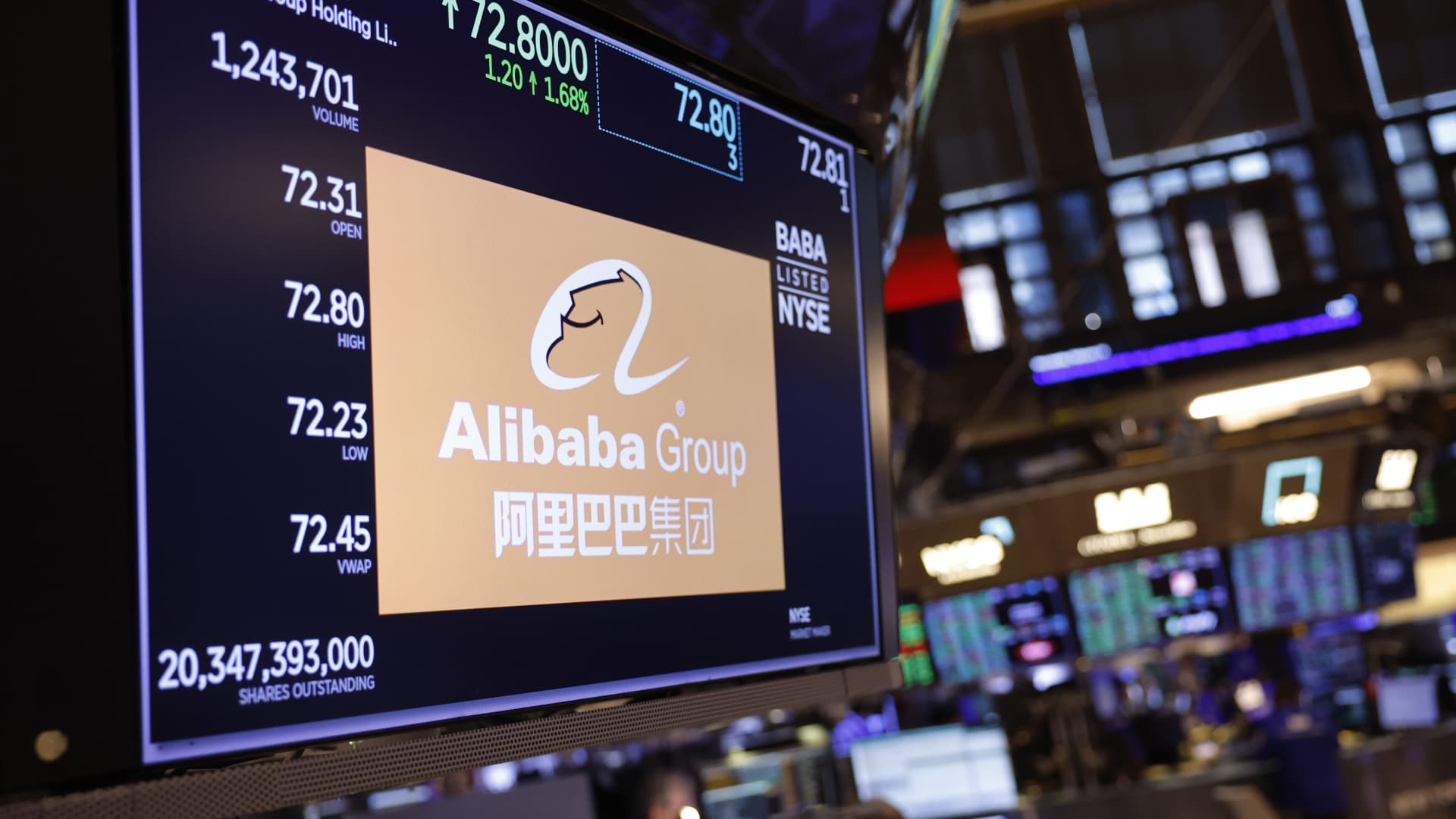
The Alibaba Group company logo is displayed on a screen at the New York Stock Exchange during morning trading on February 14, 2024 in New York City.
Michael M. Santiago | Getty Images
Alibaba on Tuesday said it was scrapping a planned initial public offering for its smart logistics unit Cainiao, adding to recent woes for the former Chinese tech darling.
The shelving of the planned IPO — which would have been a boon to Alibaba, handing it an injection of cash with a key exit deal — comes after deteriorating market conditions in China.
Investors have soured on China of late, worried by a litany of issues including softer consumption, and a real estate and debt crisis.
In a press release Tuesday, Alibaba said that it was withdrawing its IPO and listing application for Cainiao, and would also buy the remaining shares of the company it does not already currently own.
As of around 6:50 a.m. ET, Alibaba’s American depositary receipt were virtually unchanged in U.S. premarket trading Tuesday.
Alibaba currently owns a 64% stake in Cainiao. It says it intends to invest up to $3.75 billion to acquire the remaining 36% from minority investors and employees with vested equity.
Joe Tsai, Alibaba’s chairman, said in a statement that the company took the decision to pull its planned IPO of Cainiao and instead take full ownership of the business as “we believe this is an appropriate time to double down” on investing in the logistics business.
The offer values Cainiao at $10.3 billion, Alibaba said. Cainiao, which Alibaba first launched in May 2013, provides warehousing and fulfillment services, last-mile delivery and pick-up posts, and reverse logistics to customers of Alibaba’s Taobao and Tmall e-commerce sites.
Hong Kong, where Alibaba and Chinese tech peers Tencent, Baidu and JD.com are listed, has not followed the same upward trajectory as its U.S. and European peers.
In the past 12 months, Hong Kong’s Hang Seng index is down around 15%. The U.S. Dow Jones Industrial Average and the Euro Stoxx 600 indexes, on the other hand, are up a respective 21% and 15% each over the same time period.
Tech stocks, in particular, have fared badly in China. Alibaba shares have dropped nearly 18% in the past 12 months. Tencent, Baidu, and JD.com are down 20%, 30%. and, 32%, respectively.





